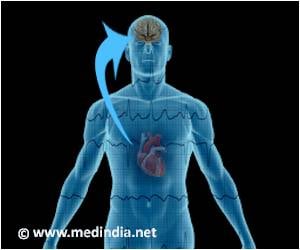Patients with atrial fibrillation who were admitted during the weekend have a 10% increased risk of dying over the next five years.
Patients with heart rhythm disorder who are admitted to NHS hospital over the weekend are at high risk of dying over the next five years than those admitted during the weekdays. The new research was led by Dr Rahul Potluri, founder of the ACALM study unit at Aston University, and presented at the
British Cardiovascular Society (BCS) Conference.
The study of 42,687 patients with atrial fibrillation (AF), one of the most common forms of abnormal heart rhythm, finds that those admitted outside of normal operating hours (9am-5pm, Monday-Friday) have a 10 percent increased risk of dying in the next five years. The research was adjusted to account for external factors which could influence death rates, such as age, gender, ethnic group, and the most common causes of mortality in the UK.
TOP INSIGHT
Heart failure patients discharged from hospitals during the weekends have a 32% increased risk of dying over the next five years than those discharged during the weekdays.
Normally, the heart's natural pacemaker sends out a regular electrical impulse that travels through the heart. But when someone has AF, impulses fire off from different places in the atria causing chaotic electrical activity, which makes them have an irregular, and sometimes fast, pulse. AF affects about one million people in the UK - or 1.7 percent of the population - but many more are undiagnosed and don't know they have it.
In a separate study, the researchers also looked at 31,760 heart failure patients discharged from hospitals in the north of England at weekends, finding a 32 percent increased chance of dying over the next five years compared to those sent home during regular weekday hours.
Across the UK there are more than 500,000 people diagnosed with heart failure.
Heart failure is a disabling condition and severe heart failure can have a worse life expectancy than many cancers. It is most commonly caused following a heart attack when the heart muscle suffers irreparable damage and can no longer pump blood efficiently around the body. In severe cases people with heart failure are left unable to perform regular day to day activities like walking upstairs or are left breathless, even when resting.
Sadly, up to a third of patients admitted to hospital with heart failure will die within twelve months (2).
Dr Rahul Potluri of Aston University's Medical School, said, "This study shows that the weekend effect is very much a reality for those suffering two of the most prevalent heart conditions in the UK. These patients are, quite simply, more likely to die if admitted or discharged outside regular hours, and that trend is particularly noticeable for the weekend.
Dr Paul Carter, presenting author at the BCS Conference, said, "We took steps during this study to ensure that the comparison between the two groups was as fair as possible.”
"It is interesting that both being admitted or discharged from hospital on the weekend confers an increased risk, and one which is sustained in the long-term. We cannot comment on the underlying reasons for this from our study, but it suggests that the level of support provided at weekends, from all teams involved in healthcare - in the hospital and in the community should be addressed."
Dr Potluri added, "What this research shows is that the weekend effect is not a universal phenomenon. Across the two conditions, we studied, its impact was varied, suggesting it can't be tackled effectively by blanket improvements to care.”
"Further research is urgently needed to assess what the implications of the weekend effect are for individual conditions before any costly changes to services are implemented."
Source-Newswise

 MEDINDIA
MEDINDIA




 Email
Email









